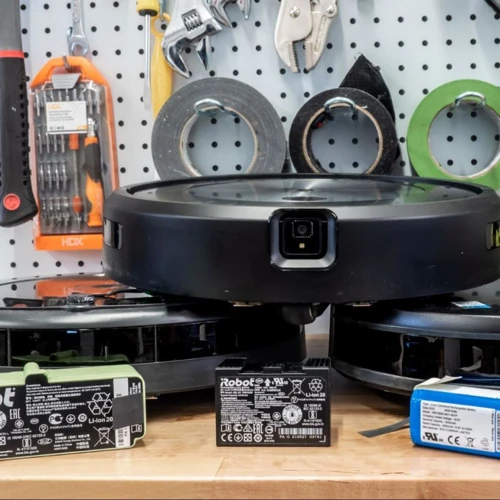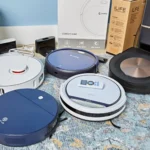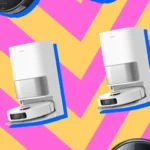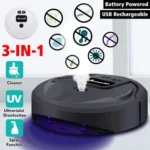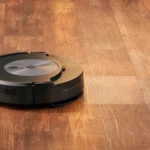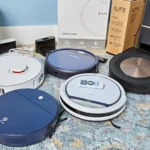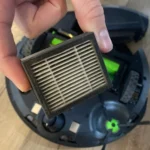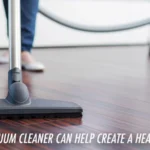Do you ever find yourself frustrated with the battery life of your smart vacuum cleaner? One minute it’s cleaning the floor with ease, and the next it’s dead and in need of a recharge. As we rely more and more on technology to help us with daily tasks, it’s essential to understand how battery size impacts the performance of your smart vacuum cleaner. In this article, we will explore the relationship between battery size and battery life, and provide you with tips on how to choose the right size for your needs and prolong your battery’s lifespan. So, let’s dive in and discover how you can ensure that your vacuum cleaner is always ready to tackle any mess that comes its way.
Why Battery Size Matters
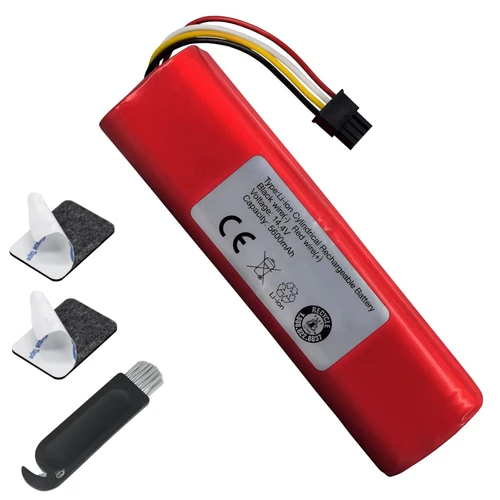
Have you ever wondered why some smart vacuums perform better than others? While the suction power and brush roll play a crucial role in a vacuum’s cleaning performance, the battery size is equally important. Without a sufficient battery size, your smart vacuum cleaner may not perform optimally, making the cleaning process longer and more frustrating. Let’s explore the reasons why battery size matters and how it impacts your vacuum’s performance. Don’t forget to check out our smart vacuum battery comparison and our article on the benefits of eco-friendly batteries for smart vacuums to learn more about maximizing your vacuum’s battery life.
1. Energy Capacity
One of the most important factors to consider when it comes to the battery size of your smart vacuum cleaner is its energy capacity. This refers to the amount of power the battery can store, which ultimately determines how long the vacuum cleaner can operate.
Energy Capacity Comparison:
| Battery Model | Voltage | Capacity | Estimated Run Time |
| Lithium-Ion Battery A | 18V | 2.0Ah | 30 minutes |
| Lithium-Ion Battery B | 22V | 2.5Ah | 40 minutes |
| Lithium-Ion Battery C | 24V | 3.0Ah | 50 minutes |
As you can see from the table above, the battery’s voltage and capacity play a crucial role in determining the runtime of your smart vacuum cleaner. The higher the voltage and capacity, the longer the battery can operate before requiring a recharge.
However, keep in mind that the energy capacity is just one of the factors to consider when choosing a battery size for your smart vacuum cleaner. The type of vacuum cleaner you have, the frequency of use, and the floor space also play a vital role in determining the battery size that’s right for you.
It is essential to factor in all these aspects when looking for the ideal battery size for your smart vacuum cleaner. Only then can you ensure that your vacuum cleaner runs smoothly without the battery running out of juice mid-cleaning.
2. Run Time
When it comes to battery size and its impact on the battery life of your smart vacuum cleaner, one of the most crucial factors to consider is the run time. Run time refers to the amount of time your vacuum cleaner can operate on a single charge. A longer run time means you can clean more areas without needing to stop and recharge the battery.
Different types of smart vacuum cleaners will have different run times depending on their power consumption and the size of the battery. To help you understand this concept better, take a look at the following table that shows the estimated run times of some popular smart vacuum models:
| Vacuum Cleaner Model | Battery Size | Run Time |
|---|---|---|
| Shark IQ Robot RV1001AE | 2600 mAh | 90 minutes |
| iRobot Roomba i7+ | 3300 mAh | 75 minutes |
| Eufy RoboVac 11S | 2600 mAh | 100 minutes |
| Xiaomi Mi Robot Vacuum | 5200 mAh | 150 minutes |
Some vacuum cleaner models have a run time of only 30-45 minutes, while others can run for up to 150 minutes on a single charge. Keep in mind that the run time of your vacuum cleaner will also depend on how you use it. For instance, if you use your vacuum cleaner on a high power setting, it will consume more energy and run for a shorter time.
Understanding the run time of your smart vacuum cleaner is important because it determines what areas you can clean before needing to recharge. If you have a large floor space, you may want to consider a vacuum cleaner with a longer run time to avoid frequent interruptions for recharging. On the other hand, if you only have a small apartment or flat to clean, a vacuum cleaner with a shorter run time may suffice.
To get the most out of your vacuum cleaner’s run time, it’s important to use it efficiently. This means planning your cleaning route and avoiding unnecessary cleaning of areas that are already clean. You can also set a timer on your vacuum cleaner to schedule cleaning during times when you won’t be at home to prolong the battery life.
3. Charging Time
When it comes to the battery life of your smart vacuum cleaner, the charging time of the battery is another crucial factor to consider. Here are some points to keep in mind:
– Battery Type: Different batteries have different charging times. While lithium-ion batteries have a shorter charging time, NiMH batteries take longer to charge. However, lithium-ion batteries tend to be more expensive than NiMH batteries.
– Battery Size: The bigger the battery, the longer it will take to charge. For example, a 3000mAh battery will take longer to charge than a 2000mAh battery.
– Charger Specifications: The charger’s specifications can also affect the charging time. A higher output charger will charge the battery faster than a lower output charger.
– Power Source: The power source used to charge the battery can also affect the charging time. A 120V power source will charge the battery faster than a 12V power source.
It is essential to keep in mind that the charging time of your vacuum cleaner battery will affect the overall usage time. It is crucial to choose a battery size that suits your needs and preferences. If you have a larger cleaning area and would like longer battery life, a bigger battery may be necessary, despite extended charging time. Additionally, it is essential to ensure the battery is adequately charged before usage to increase the run time of your vacuum cleaner.
It is important to keep your vacuum cleaner battery and charger in good condition. Be sure to follow the manufacturer’s recommendations for charging, use, and storage to avoid damaging your battery. Consistent optimized charging according to the manufacturer’s recommendations will also prolong the life of your battery. The charging time of your vacuum cleaner battery is a crucial factor to consider, and it can impact the battery’s energy capacity, run time, and charging frequency, making it essential to choose wisely.
Factors to Consider
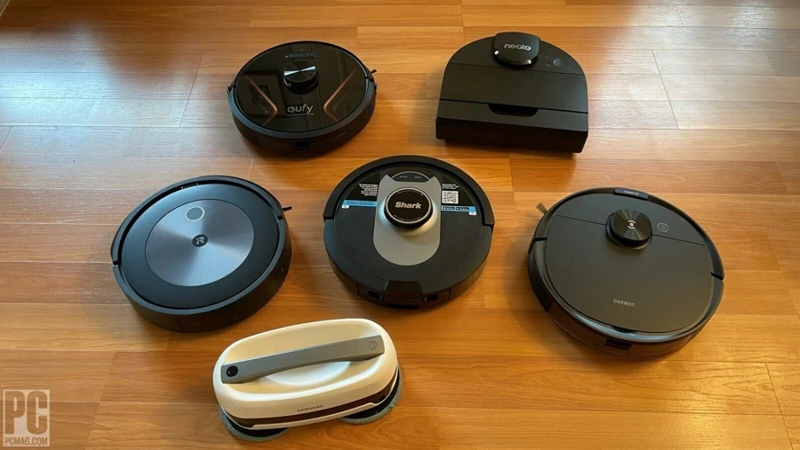
When it comes to buying a new smart vacuum cleaner, battery size is not the only factor you should consider. There are several other important factors that can affect the performance of your vacuum cleaner and your overall vacuuming experience. Before making a decision, it’s important to keep in mind some key considerations that will affect your ultimate choice. Let’s take a closer look at some of the most important factors to consider.
1. Type of Vacuum Cleaner
When choosing the right battery size for your smart vacuum cleaner, it is essential to consider the type of vacuum cleaner you have. Different types of vacuum cleaners have different power requirements and operating modes, which can impact battery life. Here are some factors to consider:
- Handheld: If you have a handheld vacuum cleaner, you’ll likely need a smaller battery as the device operates in short bursts. A smaller battery can typically provide enough power for short cleaning sessions.
- Stick: Stick vacuum cleaners are cordless and designed for quick cleanups. These devices typically require a more substantial battery due to their longer run time and reliance on suction power. For these types of vacuum cleaners, a battery with a capacity of at least 2000mAh is recommended.
- Robotic: Robotic vacuum cleaners are designed to operate autonomously, and as such, their battery life is critical. Look for a battery with a capacity of at least 2500mAh, which can provide enough power for a full cleaning cycle. Some robotic vacuum cleaners come with replaceable batteries, which can be an advantage for those who need to use their robot cleaner frequently.
- Upright: Upright vacuum cleaners usually come with a cord and a plug. However, many manufacturers offer cordless options that, in most cases, require bigger batteries. If you have a cordless upright vacuum cleaner, you’ll need a larger battery since these devices require more power to generate the same suction and go the distance.
It is also important to consider the specific model of your vacuum cleaner, as some models may have unique power requirements. Check the manufacturer’s recommendations and specifications for your vacuum cleaner to ensure you pick the right battery size.
2. Frequency of Use
When deciding on the size of the battery for your smart vacuum cleaner, it’s important to consider the frequency of use. How often you use your vacuum cleaner will affect the battery’s performance and its lifespan.
| Frequency | Recommendation |
|---|---|
| Everyday Use | A larger battery capacity is recommended for frequent, everyday use. This will ensure that your vacuum cleaner can adequately clean your home without having to frequently recharge the battery. |
| Weekly Use | A medium-sized battery capacity is suitable for weekly use. This will allow your vacuum cleaner to efficiently clean your home without having to charge it too often. |
| Occasional Use | A smaller battery capacity is appropriate for occasional use. If you only use your vacuum cleaner once every few weeks, a smaller battery will still provide enough power to clean your home without being too expensive. |
If you’re unsure of how often you will use your vacuum cleaner, it’s always better to opt for a larger battery capacity to ensure that you’re not constantly having to charge it. Additionally, a larger battery will be beneficial if you have a large home or if you prefer to do all your cleaning in one go.
Keep in mind that a battery’s lifespan is affected by how often it’s charged and discharged. If you have a smaller battery, but use it frequently, you may need to replace it sooner than if you had a larger battery that was used less often. It’s important to find a balance between battery size and frequency of use to maximize both the performance and lifespan of your smart vacuum cleaner.
3. Floor Space
One of the factors that affect the battery life of your smart vacuum cleaner is the floor space where it will be used. The larger the floor space, the more the vacuum cleaner will have to work to clean it. This means that a smaller battery may not be sufficient to cover the entire area, resulting in frequent charging interruptions.
Here are some things to consider when it comes to floor space:
- Room count: If you have several rooms in your home, a vacuum with a larger battery capacity may be needed to clean each room effectively. A smaller battery vacuum cleaner may struggle to clean multiple rooms on one charge.
- Room size: The size of each room also matters. A bigger room will require more time to clean, and the vacuum cleaner will run on battery for longer. A larger battery can handle the cleaning of a larger room without running out of power before the job is done.
- Floor type: The type of flooring in your home can also impact the battery life of your vacuum cleaner. Cleaning carpets consumes more energy than cleaning hardwood floors or tiles. If you have mostly carpet in your house, you may want to invest in a vacuum with a larger battery capacity.
- Stairs: Cleaning stairs requires more energy than cleaning flat surfaces. If you have stairs in your home, then a smaller battery may not last long enough to finish the cleaning job. Consider getting a vacuum cleaner that has enough battery power to handle stairs as well.
When it comes to floor space, it’s important to consider the size of your house and the type of floors you have. A larger battery capacity vacuum cleaner may be needed for larger spaces, multiple rooms, or difficult-to-clean floors. Taking these factors into account will help you make an informed decision when choosing the right battery size for your smart vacuum cleaner.
4. Budget
When it comes to purchasing a smart vacuum cleaner, budget is an important factor to consider. Not all vacuum cleaners are created equal, and the type of vacuum cleaner you choose and the size of the battery you opt for can have a major impact on the price. Here are some factors to consider when it comes to budget:
- Price Range: Smart vacuum cleaners are available in a range of prices, from budget-friendly options to high-end models with all the bells and whistles. Determine your budget before you start shopping, and look for models within that range. Keep in mind that a larger battery typically means a higher price tag.
- Long-Term Savings: Although it may be tempting to opt for a cheaper model with a smaller battery, it may not be the most cost-effective option in the long run. A larger battery can provide longer run time and require less frequent charging, saving you time and money in the long term.
- Features: Consider which features are most important to you and prioritize accordingly. Some models may have advanced features like automatic mapping or voice control, but these can come with a higher price tag. Determine which features are essential versus which are nice-to-have, and choose a model accordingly.
- Brand: Buying from a reputable brand can provide peace of mind in terms of product quality and customer support, but may come with a higher price tag. Consider if brand loyalty is important to you, and if it justifies the extra cost.
Ultimately, the budget you choose will depend on your individual needs and priorities. Consider all of these factors to make an informed decision that fits your budget while also providing the battery size and features you need for your smart vacuum cleaner.
How to Choose the Right Size
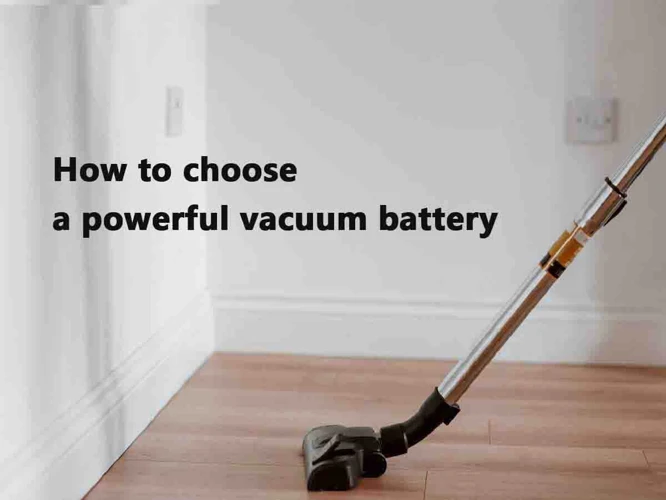
Choosing the right battery size for your smart vacuum cleaner can be a perplexing task. With so many options available in the market, it can be challenging to determine which one is perfect for your specific requirements. However, a bit of understanding and research on the key factors can help you make an informed decision. In this section, we’ll share some tips and tricks to guide you on how to select the ideal battery size for your smart vacuum cleaner.
1. Check the Manufacturer’s Recommendations
One of the primary considerations when choosing the battery size for your smart vacuum cleaner is to check the manufacturer’s recommendations. This information can usually be found in the user manual or on the product website. It is important to follow these recommendations to ensure that the battery operates optimally and to avoid damaging the device.
Manufacturer’s recommendations can include:
| Recommendation | Explanation |
|---|---|
| Recommended battery size | The manufacturer may recommend a specific battery size that is compatible with the device. Using a different size may cause performance issues or damage the device. |
| Charging time | The manufacturer may recommend the optimal charging time for the battery. Overcharging or undercharging the battery can affect its lifespan and performance. |
| Operating time | The manufacturer may provide an estimate of the expected operating time based on the battery size. This can help you choose a battery that is suitable for your cleaning needs. |
| Battery type | The manufacturer may recommend a specific type of battery that is compatible with the device. Using a different type of battery may not only affect performance but might be dangerous. |
It is advisable to take these recommendations seriously when purchasing a battery for your smart vacuum cleaner. Going against these recommendations may result in unsatisfactory performance or even damage to the product. Before making a purchase, always check the manufacturer’s recommendations to ensure that you are getting the right battery size that will fit your specific needs.
2. Consider Your Cleaning Needs
When choosing the right battery size for your smart vacuum cleaner, it is essential to consider your cleaning needs. This means considering the size of your home, the type of flooring, and the frequency of cleaning. To help you make an informed decision, we’ve put together a table outlining different cleaning needs and the recommended battery sizes.
| Cleaning Needs | Recommended Battery Size |
|---|---|
| Small Apartment | 2000mAh-2500mAh |
| Medium-sized Home | 2500mAh-3000mAh |
| Large Home | above 3000mAh |
For a small apartment, a battery size of 2000mAh to 2500mAh should be sufficient. This is because the space to be cleaned is relatively small, and you don’t need the vacuum cleaner to run for a very long time. For a medium-sized home, a battery size of 2500mAh to 3000mAh would be more appropriate, as it will provide sufficient energy to cover a larger area.
For a large home, a battery size of above 3000mAh would be ideal, as it will provide enough energy to cover a larger area and a longer runtime. A larger home may have more rooms to clean and more carpeted areas, which require more energy to clean effectively.
It’s important to consider your cleaning needs before settling on a battery size. A larger battery doesn’t necessarily mean better if it exceeds your needs, and a smaller battery than required would need to be recharged more often.
3. Look for Weight and Size Balance
When choosing a smart vacuum cleaner battery size, it’s important to also consider weight and size balance. While larger batteries may offer more energy capacity and longer run time, they can also make the vacuum cleaner heavier and bulkier. Here are some tips to help you find the right weight and size balance for your needs:
- Consider the weight of the vacuum cleaner itself. If your priority is having a lightweight and easy-to-maneuver vacuum cleaner, then you may want to opt for a smaller battery size to help keep the overall weight down.
- Think about the size and layout of your home. If you have a lot of furniture or tight spaces to navigate, a smaller, more compact vacuum cleaner with a smaller battery may be the better option, as it can be easier to maneuver in tight spaces.
- Look for a balance between power and weight. If you need a more powerful vacuum cleaner for deep cleaning carpets and have a larger home to clean, you may want to consider a larger battery size. However, make sure to also factor in the weight and size of the vacuum cleaner to ensure it’s still manageable and easy to use.
Finding the right weight and size balance for your smart vacuum cleaner can help ensure that you can easily use it to clean your home without feeling fatigued, strained or overwhelmed. Take the time to thoroughly research and consider all factors before making your final decision to avoid discomfort or disappointment.
4. Don’t Compromise on Quality
When it comes to choosing the right battery size for your smart vacuum cleaner, it’s important not to compromise on quality. While a cheaper battery may seem like a good deal at first, it can actually end up costing you more in the long run due to its lower performance and shorter lifespan.
Here are a few key factors to consider when evaluating the quality of a battery:
| Battery Chemistry | Choose a battery that uses high-quality lithium-ion or nickel-metal hydride chemistry. These types of batteries offer better performance and longer lifespans than cheaper alternatives like NiCd or lead-acid batteries. |
| Brand Reputation | Stick with well-known, reputable brands for your battery purchase. These manufacturers have a proven track record of producing high-quality products that are built to last. |
| Warranty | Look for a battery with a solid warranty that covers defects in materials and workmanship. A good warranty will give you peace of mind and protect you from unexpected expenses if something goes wrong with your battery. |
It’s also worth noting that higher-quality batteries may cost more upfront, but they can actually save you money over time by providing better performance and lasting longer before needing to be replaced. So, don’t be tempted to save a few bucks by opting for a cheaper battery – invest in a high-quality one instead and enjoy the benefits for years to come.
Tips to Prolong Your Battery Life
You’ve invested in a smart vacuum cleaner with a sufficiently sized battery to power its cleaning capabilities, and you want to ensure that you get the most out of its battery life. It’s common knowledge that the life of rechargeable batteries diminishes over time and use, but there are steps you can take to prolong the battery’s performance. Here are some handy tips you can follow to extend the life of your smart vacuum cleaner’s battery.
1. Charge Your Battery Properly
It’s important to charge your smart vacuum cleaner’s battery properly to ensure a longer lifespan and better performance. Here are some tips to help you charge your battery properly:
- Avoid Overcharging: Overcharging can shorten the battery’s lifespan and cause it to overheat. Make sure to unplug the charger once the battery is fully charged.
- Charge at Optimal Temperature: Charging the battery at an optimal temperature (usually between 50°F and 86°F) can help extend its lifespan.
- Avoid Deep Discharge: Try not to let your battery fully die before recharging it. This can impact its ability to hold a charge over time.
- Use Original Chargers and Adaptors: Using third-party chargers and adaptors can cause damage to the battery and affect its performance.
- Remove the Battery During Storage: If you plan to store your vacuum cleaner for an extended period, remove the battery and store it separately to prevent it from draining.
- Check for Damage: Before charging your battery, make sure it’s free from any physical damage such as dents or cracks, as this can affect its performance.
By following these tips, you can help prolong your smart vacuum cleaner’s battery life and ensure it always performs at its best.
2. Store Your Vacuum Cleaner and Battery Correctly
Proper storage of your smart vacuum cleaner and its battery is crucial for maintaining its overall health and prolonging its lifespan. Here are some tips to help you store your vacuum cleaner and battery correctly:
- Remove the Battery: If you are storing your vacuum cleaner for an extended period, it is important to remove the battery. Leaving the battery in the vacuum cleaner for a prolonged period can cause it to degrade faster.
- Store the Battery Properly: When removing the battery, ensure that you store it in a cool and dry place, away from direct sunlight or heat. This will help prevent damage to the battery’s cells.
- Clean the Vacuum: Before storing your vacuum cleaner, make sure you clean it thoroughly. This includes emptying the dustbin and cleaning the filters. Dirt and debris left in the vacuum can cause damage or clog the machine during storage.
- Protect the Brush Roll: The brush roll is an essential part of your vacuum cleaner. To ensure its longevity, make sure you cover it during storage. You can use a plastic wrap or a cloth to protect it from dust and debris.
- Keep It Dry: Moisture can cause damage to the battery and the vacuum cleaner. Always ensure that the vacuum cleaner and the battery are completely dry before storing them.
- Store It in a Safe Place: When storing your vacuum cleaner, find a safe and secure location, away from direct sunlight or heat sources. This will help prevent any damage or accidents during storage.
By following these simple steps, you can prolong the lifespan of your vacuum cleaner and battery. Make sure to always read the manufacturer’s instructions for specific storage recommendations. Proper storage can save you from unwanted expenses and hassles in the future.
3. Clean Your Vacuum Regularly
Keeping your smart vacuum cleaner clean is essential to ensure its battery life remains optimal. Over time, dust, hair, and debris can accumulate in the brush roll, filter, and other parts of the vacuum, reducing its efficiency and shortening the battery life. So, make sure to follow these tips for regular cleaning of your vacuum cleaner:
- Inspect and clean the brush roll: This is the part of the vacuum cleaner that picks up dust and debris from carpets and floors, and it is prone to clogging. So, inspect the brush roll regularly and remove any tangled hair, thread, or debris. You can use a pair of scissors or a brush to clean it.
- Empty the dustbin: If you have a bagless vacuum cleaner, make sure to empty the dustbin frequently, so it doesn’t get filled up and affect the suction power. A full dustbin can also cause the motor to work harder, draining the battery faster.
- Clean the filters: Filters trap dust, dirt, and allergens to prevent them from escaping back into the air. Over time, the filters can get clogged with dust, reducing their efficiency. So, clean or replace the filters as recommended by the manufacturer. Some filters are washable, while others need to be replaced periodically.
- Check the wheels: The wheels of your vacuum cleaner can collect dust and hair, causing them to get stuck or move slower. So, inspect the wheels regularly and clean them with a damp cloth or brush.
- Inspect the battery contacts: The battery contacts are the metal pins that connect the battery to your vacuum cleaner. They can get dirty or corroded over time, affecting the charging and performance of your vacuum cleaner. So, inspect the contacts regularly and clean them with a dry cloth or a cotton swab dipped in rubbing alcohol.
By following these simple cleaning tips, you can prolong the life of your vacuum cleaner’s battery and ensure that it delivers optimum performance every time you use it.
4. Use It Wisely
Using your smart vacuum cleaner wisely can greatly extend the life of your battery, as well as ensure optimal cleaning performance. Here are some tips on how to use your vacuum wisely:
- Vacuum high traffic areas more often: High traffic areas tend to accumulate more dirt and debris, which can cause your vacuum to work harder and drain the battery faster. By vacuuming these areas more often, you can reduce the amount of work your vacuum needs to do, and thus preserve the battery life.
- Use the appropriate settings: Most smart vacuum cleaners come with different settings that allow you to adjust the suction power and cleaning mode. Using the appropriate setting for your cleaning needs can help preserve your battery life, as well as ensure optimal cleaning performance. For example, if you’re cleaning a hardwood floor, you may not need the same suction power as you would for a deep-pile carpet.
- Don’t overwork your vacuum: While most smart vacuum cleaners are designed to handle heavy-duty cleaning, it’s important not to overwork them. If you have a particularly large or dirty area to clean, consider breaking the cleaning into smaller sessions to reduce the strain on your vacuum cleaner and battery.
- Remove obstacles: Before you start cleaning, take a few minutes to remove any obstacles that could get in the way of your vacuum cleaner. This could include small toys, cords, or even pet hair. By removing these obstacles, you can help your vacuum cleaner work more efficiently and reduce the strain on the battery.
Remember, using your smart vacuum cleaner wisely can go a long way in extending the life of your battery, as well as improving your cleaning performance. So take the time to understand your cleaner, adjust your settings and clean it regularly to enjoy the best cleaning experience.
Conclusion
After going through this guide, it is evident that battery size plays a crucial role in determining the battery life of your smart vacuum cleaner. As a smart vacuum owner, it is essential to understand the impact of battery size on the overall performance of your vacuum cleaner.
Remember that a good battery is one that is durable, long-lasting, and has a high energy capacity. Therefore, when looking to buy a smart vacuum cleaner, always go for the one with a battery size that matches your cleaning needs and requirements.
Additionally, it is important to prioritize the quality of the vacuum cleaner over the battery size. You don’t want to compromise on the quality of the vacuum cleaner just to get a larger-sized battery.
Finally, to prolong the lifespan of your battery, ensure you store it correctly, use it wisely, and charge it properly. By following these tips, you can enjoy a longer-lasting battery and get the most out of your smart vacuum cleaner.
Overall, battery size and its impact on battery life are important factors to consider when selecting a smart vacuum cleaner. By keeping all these factors in mind, you can select the best vacuum cleaner that meets your cleaning needs, and your battery will be there to support you when you need it most.
Frequently Asked Questions
What is a smart vacuum cleaner and how does it work?
A smart vacuum cleaner is an automated cleaning device that navigates around your home, vacuuming dirt and debris. It uses sensors and advanced technology to map out your floor plan and create an efficient cleaning path.
What is the battery life of a smart vacuum cleaner?
The battery life of a smart vacuum cleaner can vary depending on its size and type, as well as its usage patterns. On average, you can expect a run time of 60 to 120 minutes.
Why does battery size impact battery life?
Battery size affects the energy capacity and run time of your smart vacuum cleaner. The larger the battery, the longer the device can run before requiring a recharge.
What factors should I consider when choosing a battery size for my smart vacuum cleaner?
You should consider the type of vacuum cleaner, frequency of use, floor space, and your budget when choosing a battery size for your smart vacuum cleaner.
How can I check the manufacturer’s recommendations for a battery size?
You can check the manufacturer’s website or user manual for recommendations on the optimal battery size for your smart vacuum cleaner.
Can I change the battery in my smart vacuum cleaner?
Most smart vacuum cleaners have removable batteries that can be swapped out for replacements. However, you should always consult the user manual to ensure compatibility.
How do I charge my smart vacuum cleaner battery properly?
Charge your smart vacuum cleaner battery using the charger provided by the manufacturer, and follow the recommended charging times and procedures to avoid damaging the battery.
How should I store my vacuum cleaner and battery?
Store your vacuum cleaner and battery in a cool, dry place away from direct sunlight and other heat sources. Remove the battery from the device if you won’t be using it for an extended period.
Why is cleaning my vacuum cleaner important?
Regular cleaning of your vacuum cleaner is important to maintain its performance and prolong the life of the device. A clean device is also less likely to suffer from malfunctions and breakdowns.
Can I use my smart vacuum cleaner on different surfaces?
Most smart vacuum cleaners can be used on a variety of surfaces, including hardwood floors, carpets, and tile. However, you should always check the manufacturer’s recommendations before using the device on any new surface.
